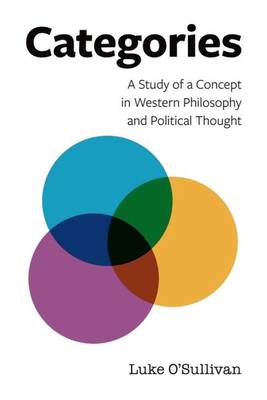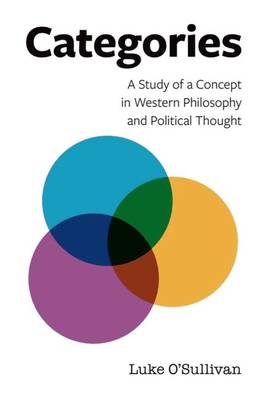
- Afhalen na 1 uur in een winkel met voorraad
- Gratis thuislevering in België vanaf € 30
- Ruim aanbod met 7 miljoen producten
- Afhalen na 1 uur in een winkel met voorraad
- Gratis thuislevering in België vanaf € 30
- Ruim aanbod met 7 miljoen producten
Zoeken
Categories
A Study of a Concept in Western Philosophy and Political Thought
Luke O'Sullivan
Hardcover | Engels
€ 193,45
+ 386 punten
Omschrijving
In ancient and modern Western thought, the problem of the nature of categories has been inseparable from arguments about the nature of selfhood; about how knowledge is organised; about how power should be distributed; and about how history should be understood. For Plato, Forms belonging to a timeless order of being played the role of categories or fundamental concepts; for Aristotle categories were immanent in things; for Kant they were a priori logical structures of our consciousness; and for Hegel they were dynamic, dialectical inter-related ideas. In Categories, O'Sullivan shows how these answers have gone forward into the contemporary era, and identifies three key schools of thought that have developed since Hegel in particular. He explains modern thought as a tension between a desire for a single dominant perspective, whether scientific or phenomenological; a belief in irretrievable fragmentation; and an effort to find a middle ground.
Specificaties
Betrokkenen
- Auteur(s):
- Uitgeverij:
Inhoud
- Aantal bladzijden:
- 344
- Taal:
- Engels
Eigenschappen
- Productcode (EAN):
- 9781399524155
- Verschijningsdatum:
- 31/07/2024
- Uitvoering:
- Hardcover
- Formaat:
- Genaaid
- Afmetingen:
- 156 mm x 234 mm
- Gewicht:
- 657 g

Alleen bij Standaard Boekhandel
+ 386 punten op je klantenkaart van Standaard Boekhandel
Beoordelingen
We publiceren alleen reviews die voldoen aan de voorwaarden voor reviews. Bekijk onze voorwaarden voor reviews.











